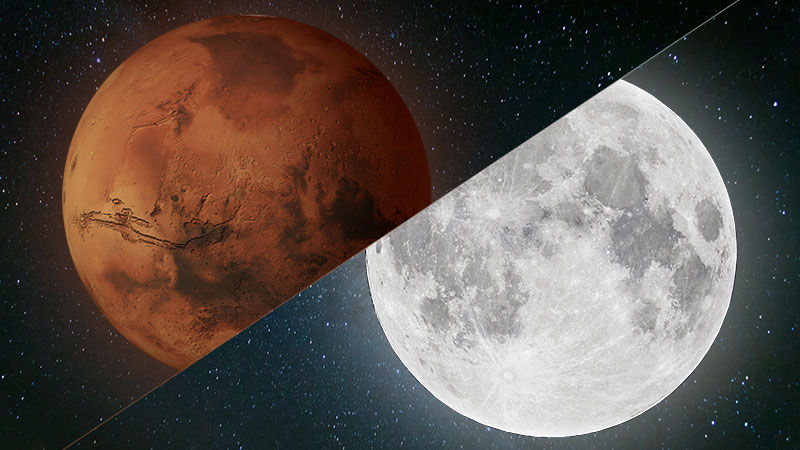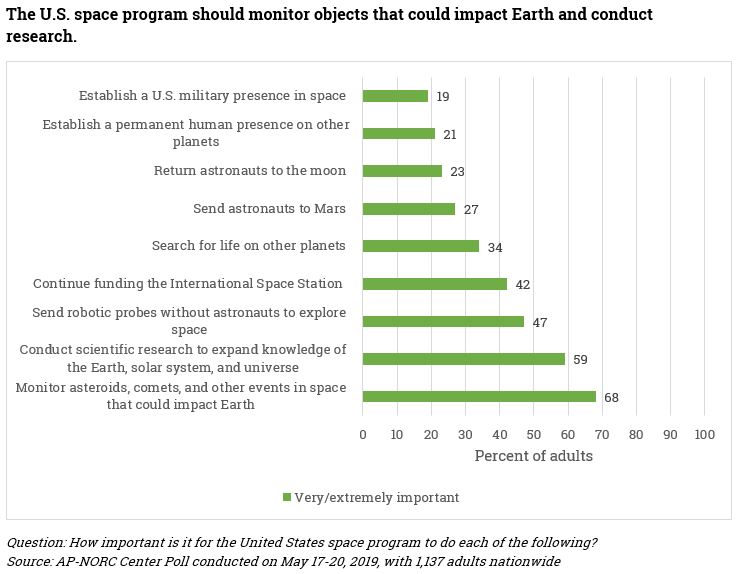Where will the Americans fly to Mars or the Moon?

In accordance with the directive of the President of the United States, a steady presence on the Moon will become a stepping stone to subsequent space achievements, such as Mars. D. Trump recently made it clear that he prefers to quickly implement a flight plan to Mars, tweeting a few weeks ago: "Despite all the money we spend, NASA should not talk about the flight to the moon - we did it 50 years ago and now focused on the much bigger things that we do, including on a flight to Mars. ”
Nearly two years ago, Vice President Mike Pence made an official statement on the administration’s space policy, saying that NASA will reorient its program to “renew the American presence on the moon, which is a vital strategic goal.” In December 2017, President Trump signed the appropriate document.
The new survey, referred to as 1.137, shows that the topic of sending people to the Moon or Mars does not correspond to the opinion of most Americans. Surveys conducted by Associated Press-NORC, a public relations research center, suggest that only one out of four Americans consider sending people to the Moon or Mars to be “extremely” important.
')

For comparison, 59 percent of respondents believe that research on Earth, in the Solar System, and in the Universe is very important to NASA. An even greater number, 68 percent, attach such importance to the monitoring of asteroids, comets or other objects from space that can hit the Earth.
These data are consistent with the results of a study conducted by the Pugh Research Center about a year ago, which showed that most of the population is much more interested in studying the environment, climate and protecting the planet from asteroids than in manned flight and the study of the Moon and Mars.
A lot of money, little results
Americans like the idea of a space program, and they appreciate automatic interplanetary stations, landing on Mars. Most Americans believe that NASA absorbs a quarter of the US budget. In fact, its budget is less than half a percent.
Americans also understand that they are not getting high returns on their space research investments, especially when it comes to deep space. For example, over the past 15 years, NASA has been developing a deep space exploration program, mainly the Orion spacecraft, the SLS and Ares V rockets, as well as their launch systems.
It cost almost 50 billion dollars. And for what? None of these devices is yet ready for a manned space flight, and in fact people are unlikely to be able to use them for a space flight until the mid-2020s.
The Trump administration is likely to continue to “master” the Martian manned program, despite promises of a lunar landing in 2024. On the development of Orion and rockets is supposed to spend more than $ 3 billion annually. But it is also possible to change the budget depending on the circumstances.
Source: https://habr.com/ru/post/457032/
All Articles